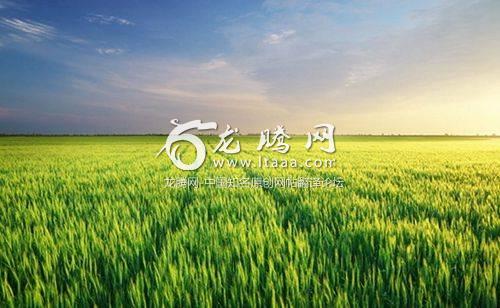土地所有权与可持续发展 [美国媒体]
对于世界上绝大多数的贫困人民和弱势群体来说,包括土地使用权在内的财产保障权益是一种奢望,除非这种现状有所改变,否则联合国的可持续发展的目标将难以实现。
Bolstering land rights strengthens development
标题:加强土地权可以促进发展
For most of the world’s poor and vulnerablepeople, secure property rights, including land tenure, are a rarely accessibleluxury. Unless this changes, the UN Sustainable Development Goals will be impossibleto achieve.
对于世界上绝大多数的贫困人民和弱势群体来说,包括土地使用权在内的财产保障权益是一种奢望,除非这种现状有所改变,否则联合国的可持续发展的目标将难以实现。
Land tenure determines who can use land,for how long, and under what conditions. Tenure may be based both on officiallaws and policies, and on informal customs.
土地使用权决定了谁能够使用土地,使用多久,以及使用的条件。使用权限可能基于官方的法律政策,也可能取决于非正式的一些习俗。
In Romania, for example, many Roma haveless secure farmland tenure than their non-Roma neighbors. Likewise, inSoutheast Asia, hill tribes rarely have legal rights to their indigenousholdings, which are often located in state forests.
例如,在罗马尼亚,许多罗马尼亚人拥有的土地权利保障比他们的邻居非本土人民还要少。同样的,在东南亚,山地部落对他们的土着财产拥有很少的权力,因为这些通常都位于国家森林里。
In Zimbabwe, a customary divorce settlementmay result in allocating all family lands and property (and even children) tothe husband, with the wife left to return to her father or another malerelative.
在津巴布韦,有一项约定俗成的离婚协议,这会导致男方将获得所有的土地和财产(甚至包括孩子),而女方只能回她娘家或者去找其他的男性亲戚。
In Sarajevo, thousands of apartments havebeen deemed illegal due to outdated urban plans and missing building permits,locking families’ most valuable assets outside the mainstream economy.
在萨拉热窝(南斯拉夫中部城市),由于过时的城市规划以及建筑许可的缺失,成千上外的公寓住宅被认为是非法的,这就将一个家庭最重要的财产锁定在了主流经济之外。
By stifling economic growth, inadequateland-tenure systems perpetuate poverty and marginalization. But the opposite isalso true: Strong, properly enforced land rights can boost growth, reducepoverty, strengthen human capital, promote economic fairness (including genderequity), and support social progress more broadly.
由于经济增长的抑制,不充分的土地所有权制度将会使贫穷和排斥永久化,但相反的来看,强有力的,适当化管理土地权利将促进发展,减少贫困,加强人力资本,促进经济平衡(包括性别平等)以及更广泛的支持社会的进步。
Climate resilience
气候适应性
Moreover, secure land rights are essentialto reduce disaster risk and build climate resilience, which is an urgentimperative at a time when climate change is already fueling more—and morefrequent—extreme weather.
此外,保障土地权利是降低灾害风险及建立气候适应性的关键,在气候变化助长的越来越频繁的极端天气之际,这是当务之急。
When disasters displace people and destroytheir homes, properly maintained land records provide the baseline forcompensation and reconstruction of shelters, and help affected communitiesrebuild better.
在灾害使人们流离失所的时候,妥善保管土地记录为住房补偿和重建提供了一定基础,并帮助受影响的社区得以更好的重建。
Reflecting the importance of secure landownership to the SDGs’ success, the World Bank Group is now working withdeveloping countries to improve their land-tenure systems and expand thecoverage of legally recognized and registered rights.
世界银行集团正在帮助发展中国家完善他们自己的土地权限管理系统和扩大合法继承及登记的权力,这反映了土地所有权的保障和可持续发展目标(SDG)成功的重要性。
Already, World Bank Group efforts haveenabled one million hectares of indigenous land in Nicaragua—over 30 percent ofthe country’s territory—to be demarcated, titled, and registered, a processthat has benefited some of the country’s most vulnerable groups.
世界银行集团的努力已经使尼加拉瓜国家一百万公顷的土地——超过30%的国家领土得以划分,命名和登记,这一举动帮助了这个国家的一些弱势团体。
Land is at the heart of development. Secureland tenure is thus vital to building the inclusive, resilient, and sustainablecommunities that will propel economic and social progress well into the future.
土地是发展的核心,保障土地使用权对于建立有包容性,回弹性及可持续性的社区至关重要,这些社区将会把经济和社会进步推向未来。
Mahmoud Mohieldin is World Bank GroupSenior Vice President for the 2030 Development Agenda, United Nations Relationsand Partnerships. Anna Wellenstein is Director of Strategy and Operations forthe World Bank Group’s Social, Urban, Rural, and Resilience (SURR) GlobalPractice. Shanghai Daily condensed the article.
Mahmoud Mohieldin是世界银行集团负责2030年发展议程,联合国关系和伙伴关系的高级副行长。Anna Wellenstein是世界银行集团社会、城市、农村和恢复能力(SURR)全球实践的战略和运营总监。上海日报浓缩了这篇文章。
版权声明
我们致力于传递世界各地老百姓最真实、最直接、最详尽的对中国的看法
【版权与免责声明】如发现内容存在版权问题,烦请提供相关信息发邮件,
我们将及时沟通与处理。本站内容除非来源注明五毛网,否则均为网友转载,涉及言论、版权与本站无关。
本文仅代表作者观点,不代表本站立场。
本文来自网络,如有侵权及时联系本网站。
阅读:
图文文章RECOMMEND
热门文章HOT NEWS
-
1
Why do most people who have a positive view of China have been to ...
- 2
- 3
- 4
- 5
- 6
- 7
- 8
- 9
- 10
推荐文章HOT NEWS
-
1
Why do most people who have a positive view of China have been to ...
- 2
- 3
- 4
- 5
- 6
- 7
- 8
- 9
- 10













